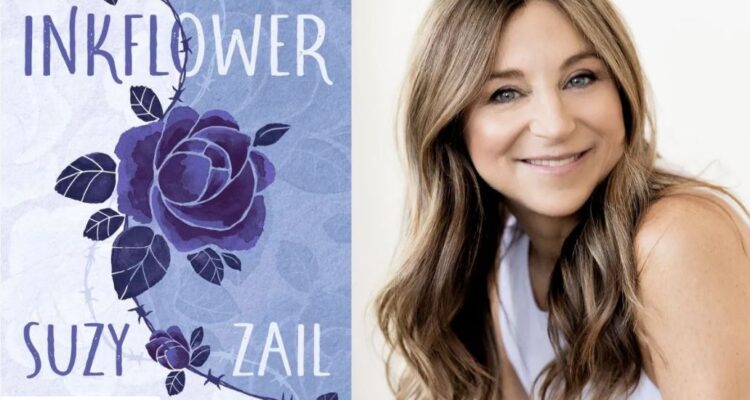For YA readers and older, this book touches on the story of a Holocaust survivor, interlaced with more current dramas of his teenage child.
Inkflower is aimed at young adults, defined as 14 years of age and over. It relates the experiences of a Holocaust survivor as told by his teenage daughter, Lisa. She quotes her father, Emil, verbatim. She also recounts her daily experiences at school, at home and with friends while her father is dying a slow death from motor neurone disease.
So it hardly needs saying that this novel is not an easy read. The detailed experiences of a person who survived bullying, persecution and discrimination as a Jewish boy in what was then Czechoslovakia, followed by starvation in forced labour camps, and culminating in a spell in the infamous Auschwitz concentration camp makes for uncomfortable reading to say the least. Emil tells his story to his loving wife, two sons and his daughter while he slowly loses the ability to use his muscles. Understandably, Lisa doesn’t cope too well and, as she recounts her experiences, relationships and problems, the reader is reminded what it’s like to be a troubled teen in a stressful situation.
This novel is grounded in fact. What happened to Emil is based on what happened to Zail’s father. Obviously, the author believes that it is good for young people to be made aware of the Holocaust, not least because antisemitism has not disappeared, and dreadful diseases can attack those we love.
Read the review by Erich Mayer on Arts Hub.

